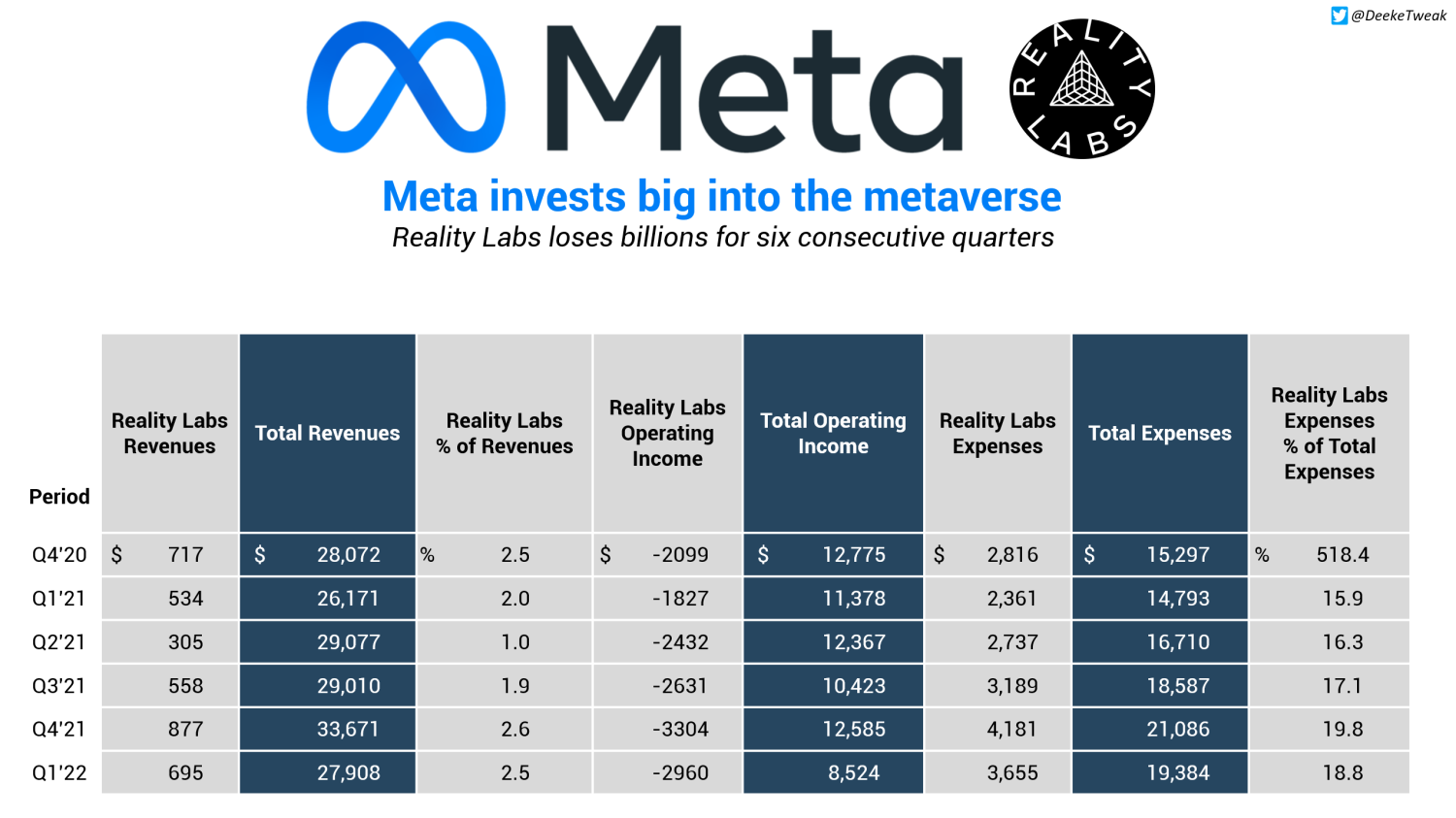Facebook’s Meta continues to lose billions in pursuit of the metaverse; already lost $6B on its metaverse project

In October 2021, Facebook founder and CEO Mark Zuckerberg announced with great fanfare that it was changing its corporate name to Meta to reflect its focus on the metaverse, a term the social giant described as “an embodied internet where you’re in the experience, not just looking at it. We call this the metaverse, and it will touch every product we build.”
Meta also said it plans to invest $10 billion on its metaverse to reflect the company’s new vision. At the time, Meta said it plans to hire 10,000 people in the European Union to build a “metaverse.” Zuckerberg added that metaverse is a major investment for the company and plays a vital role for the company going forward.
Fast forward almost a year after the rebrand, the company has already lost about $0.5 trillion in market capitalization. That’s not all. Meta’s VR division Reality Labs was also hemorrhaging cash.
In 2021, the unit lost about $10.2 billion, with losses accelerating. Reality Labs’ losses also ballooned to $3.3 billion by the fourth quarter of 2021. Then in April of this year, Reality Labs posted an operating loss of $2.96 billion on $695 million in revenues for Q1’22.
“We do expect reality labs operating loss to increase meaningfully in 2022, and that’s incorporated into our outlook,” CFO Dave Wehner told analysts during the earnings call.
Now, the Q2 numbers are in and Meta doesn’t appear to be faring well. According to CNBC, Meta lost another $2.81 billion on $452 million in revenue from Reality Lab as the company continues to pursue its metaverse ambitions.
“The substantial sum is the latest sign that CEO Mark Zuckerberg and Meta continue to spend heavily to pivot the social media giant to developing virtual reality and augmented reality products and the so-called metaverse,” CNBC said.

Early this year, Meta also revealed it lost 500,000 daily users. That was not all. The company also reported a declined profit. Zuckerberg blamed the user decline on TikTok, the short video platform we discussed above.
Zuckerberg said the Facebook users’ decline was partly due to the boom in popularity of the competitor platform TikTok. The blame game didn’t stop there. Zuckerberg also blamed the woes on a combination of other factors, including privacy changes to Apple’s iOS and economic challenges. The company said the lower-than-expected growth was due to inflation as well as supply chain issues impacting advertisers’ budgets.
Meanwhile, some Facebook detractors see this as good news. In a piece titled, “Zuckerberg Has Burned $500 Billion Turning Facebook to Meta,” New York Magazine, Kevin Dugan opined that we may be witnessing the early days of the fall of Zuckustus, a jab at Zukerberg and a reference to Former Roman emperor Caesar Augustus.
Dugan writes:
“We may be witnessing the early days of the fall of Zuckustus. Facebook’s once unbeatable ad-tracking system — the engine that made it a more than $1 trillion company — has effectively been neutralized by the likes of Apple, which allows users to block the company’s trackers. (Google is set to start phasing in similar protections to its users over the next two years.)”
Dugan is not alone. Mutahar, a YouTuber, also shared his views and talked about what every Facebook hater has been wishing for a long time–“Facebook Is Finally Dying.” For the first time in about a decade, Meta has now fallen out of the top ten largest companies in the world by market capitalization.

